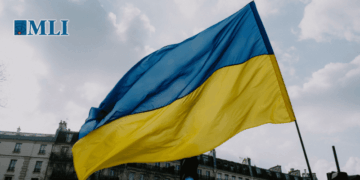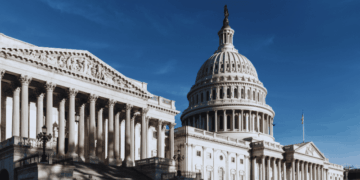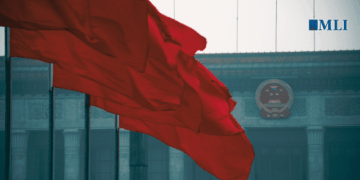This article originally appeared in Real Clear World.
By Sarah Teich, January 16, 2024
U.S. officials have expressed support for Israel’s position that a ceasefire wherein Hamas remains in control of the Gaza Strip is not tenable but many of the United States’ traditional allies appear to disagree.
Canadian government officials have made vociferous statements in favor of an immediate and apparently unconditional ceasefire in Gaza. Australia, New Zealand, France, and others have likewise expressed support for an immediate ceasefire between Israel and Hamas. Canada’s support for the ceasefire even garnered thanks directly from Ghazi Hamad, a senior leader of Hamas, in an interview late last year.
This represents a significant shift and a deterioration of support for Israel among the United States’ traditional allies.
The uninformed might be liable to believe that where there is smoke, there is fire – it might seem that, with a majority of nations expressing their support, calling for an immediate and unconditional ceasefire is the principled and necessary stance.
But this stance is wrong.
Hamas started this war on October 7 in the most vicious and brutal manner imaginable. An army of drugged-up Hamas fighters invaded Israeli towns and killed, pillaged, and raped civilians, including men, women, children, and the elderly. Hamas murdered approximately 1,200 people in the rampage, and violently abducted over 200 back to the Gaza strip. Numerous Israeli and Jewish women were subjected to sexual violence. The details of the accounts are horrific. It was the single most brutal massacre against Jewish people since the Holocaust.
In the aftermath of the massacre, Hamas leadership stated, proudly and publicly, that they will not respect a ceasefire with Israel, and that they will continue to massacre Israeli civilians, as they did on October 7, “again and again”.
Hamas’ history of breaking ceasefires with Israel demonstrates that this is no empty threat. Since 2006, when Hamas seized control of the Gaza strip, there have been numerous ceasefire agreements which Hamas has broken. They broke the conditions of last year’s “humanitarian pause” multiple times.
The international community, more often than not, does not seem to notice or care when Hamas breaches ceasefire agreements with Israel. Indeed, calls for a ceasefire in the Israel-Hamas war are often paired with descriptions and criticisms of Israel’s use of force in Gaza; reference is rarely made to Hamas’ continued launching of rockets into Israeli territory or their refusal to release the hostages they abducted on October 7.
For decades Hamas has been dedicated to the eradication of both the State of Israel and the Jewish people. Calling for a ceasefire while Hamas remains in power in the Gaza strip is in effect advocating for Hamas to be given that space to do what they say they will do: rearm, reorganize, and plan further atrocities against the State of Israel and the Jewish people.
Of course, Hamas not only massacres Israelis and Jewish people; Hamas also viciously represses and murders Gazan civilians. Yehiya Sinwar, the mastermind behind the October 7 massacre, was previously convicted and imprisoned in Israel not for killing Israelis but for murdering four Palestinians with his bare hands. That case was not unique. Hamas is an autocratic, violent, repressive regime that rules the two million civilians of the Gaza strip with an iron fist. They are a designated terrorist organization – organized and well-funded by the Islamic Republic of Iran.
Peace must, as always, be the end goal. However, any ceasefire agreement before Hamas is removed from power would endanger civilian lives on both sides of the border, and further embolden Hamas’ repression.
The U.S. should remind Western allies that any ceasefire proposal that does not involve Hamas’ relinquishment of power will only harm civilians, disincentivise peace, and strengthen Hamas, an illiberal, repressive organization that is for all intents and purposes a proxy of the Islamic Republic of Iran.
The U.S. should remind Western allies that there is nothing progressive about siding with repressive regimes and there is nothing liberal about siding with illiberal regimes.
Sarah Teich is an international human rights lawyer, a senior fellow at the Center for North American Prosperity and Security, and co-founder and executive director of Human Rights Action Group.








